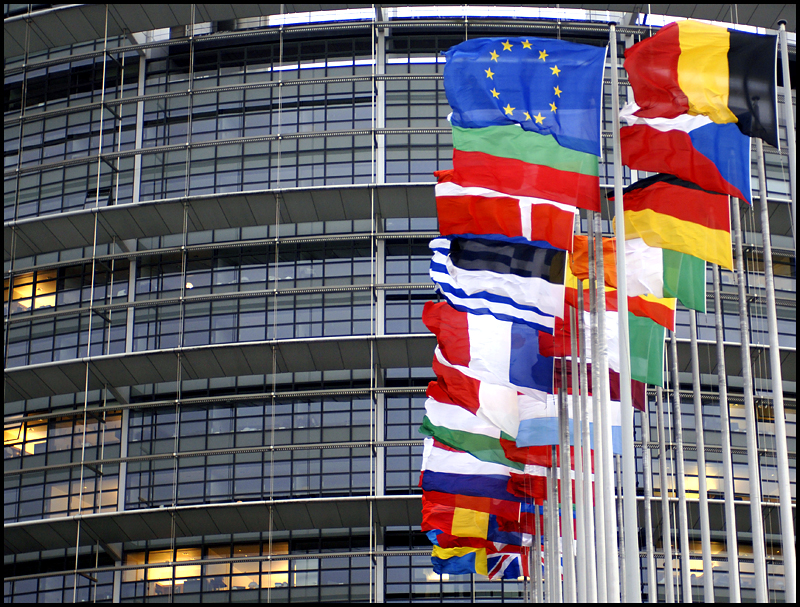As Europe continues to grapple with its pervasive economic difficulties, a number of recent elections have illuminated the region’s political landscape, in which the continent’s right-wing forces are apparently ascendant. Elections in Germany saw Angela Merkel’s centre-right Christian Democratic Union retain power, with leftist parties likely to be excluded from the new governing coalition. While the status quo has prevailed in Germany, nationalistic movements have risen to prominence in Austria and Norway following elections last month. Meanwhile, in Italy, the current government is battling to stave off a challenge from the right, led by Silvio Berlusconi. All of these examples indicate that the European public remains sceptical of extreme alternatives, but to the extent that change has been demanded, the region’s discontent has been channelled through the right rather than the left.
This state of affairs is surely surprising to those who hold the conventional wisdom that economic crises and widening social inequalities are fertile ground for leftist movements. In fact, with a few exceptions including the fleeting Occupy movement and the rise of Syriza in Greece, these years of crisis have hardly reinvigorated the European left. The right, on the other hand, has experienced an abundance of successes, with both centrists and more extreme factions gaining ground in many countries. In isolation, a flare-up of right-wing extremism or the success of some centre-right political parties may not be particularly noteworthy, but when combined these trends become significant. It is possible that we are witnessing a shift in Europe’s political spectrum – the centre drifting further right – that could prove more enduring than mere electoral success.
When a right-wing government is elected, it is generally reasonable to expect left-leaning influences to temper the government’s initiatives and exert a moderating influence upon it. The converse is true when the left enjoys electoral success. But if centre-right governments are met with an ascendant far-right, governance risks becoming radicalised rather than moderated. For example, some argue that David Cameron’s UK Conservatives’ approach to immigration has stemmed from the expanding influence of the anti-immigrant British National Party and the Eurosceptic UK Independence Party. In Norway, the Conservative Party has formed a coalition with the far-right Progress Party, which aims to further restrict immigration levels. In theory, this dynamic is equally applicable to the left, but appears to be absent for now if François Hollande’s moderate Socialist government is any indication.
What a rightward shift would mean for society in general remains to be seen, and this is far from an inexorable process. However, it is important to recognize that similar shifts in the past have demonstrated that the left-right spectrum of mainstream politics is not a static gauge, but a reflection of the relative strength of the ideologies it seeks to measure. The emergence of the neo-liberal era, for example, saw a more concentrated political spectrum revolving around a nearly universal commitment to a smaller public sector, capital mobility, free trade, and open markets. Accepting these once controversial tenets became a prerequisite to joining the mainstream of European politics. The arrival of this neo-liberal consensus was famously heralded by the centrist transformation of the UK Labour Party under Tony Blair. In 2008, there was an even more striking indication of just how politically universal these values had become when Demetris Christofias of Cyprus was elected as the first communist head of state within the EU while promising not to interfere with the free market.
[captionpix align=”right” theme=”elegant” width=”300″ imgsrc=”http://natoassociation.ca/wp-content/uploads/2013/10/european_commission.jpg” captiontext=””]
Today, it appears that any shift to the right will be far more autarkic, as frustrations with the economy have contributed to the proliferation of the xenophobic sentiments that fuel nationalist politics. It is easy to identify immigrants as the likely victims of such a shift, but there are even broader potential implications. As the mainstream provides even less room to maneuvre in an era of socio-economic polarization, the capacity of political institutions to channel and mediate socio-political conflict may become strained.
Earlier this year, a young leftist activist was killed in an altercation with neo-Nazis on a Parisian street. The precise details of the exchange have been disputed, but his death shocked France and revealed widespread anxieties about the country’s far-right and the prospect further left-right violence. Last month, many Greeks were similarly outraged by the killing of an anti-fascist rapper by a man with alleged ties to the notorious far-right Golden Dawn party that has experienced a meteoric political rise in recent years. The killing has prompted the Greek government to crack down on the party, but violent anti-fascist demonstrations have nonetheless occurred. Though it is far from assured, no one should be surprised if the Greek state’s institutional capacities prove too weak to effectively manage such intense social strife.
Even more distressingly, if other countries embark on a political path that excludes migrants and other vulnerable populations while marginalizing the left, there is a troubling possibility that political conflict will move outside of its well-established institutional boundaries.




